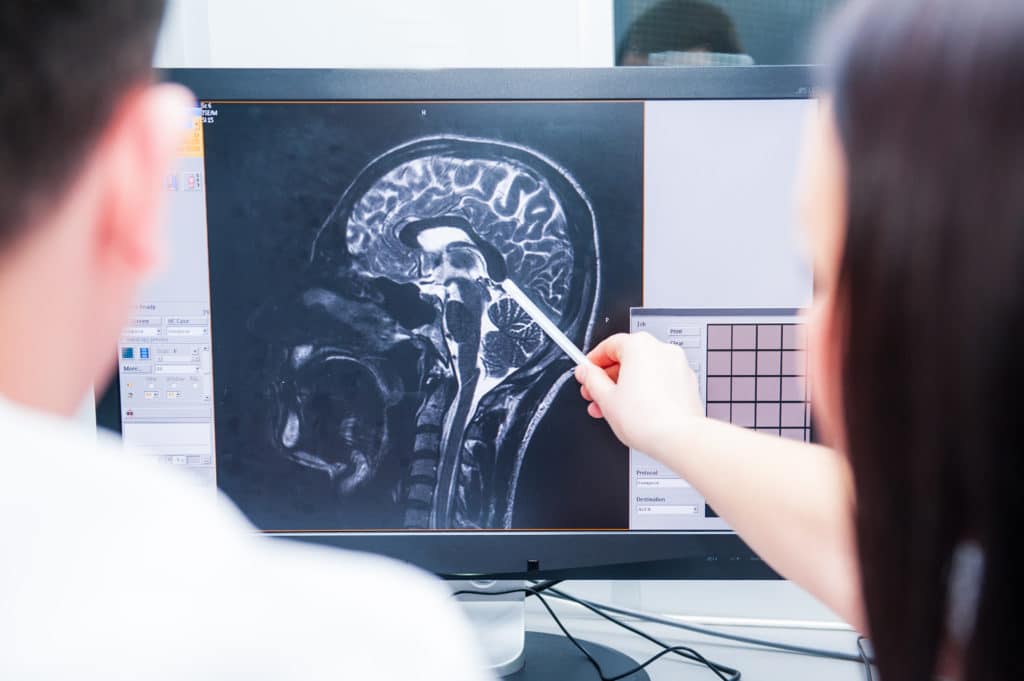Traumatic brain injury (TBI) is a serious condition impacting around 1.7 million Americans yearly.1 Nearly half of all TBIs are a result of falls. Other causes include being struck by or against an object, motor vehicle accidents, and assault.
According to the CDC, 230,000 people are hospitalized with TBI annually, with 80,000 to 90,000 experiencing long-term consequences. An estimated 5.3 million people in the United States are living with a permanent TBI-related disability.2
Mild TBI (concussion) will typically resolve without any long-term issues. However, most people with moderate to severe TBI experience ongoing concerns, including cognitive difficulties, diminished motor skills, emotional and mood disorders, and behavioral changes. Life expectancy is also reduced in individuals with TBI.3
Several medications, including anticonvulsants, antidepressants, and diuretics, have been used to address the symptoms of long-term TBI. Sadly, these cannot reverse or treat the condition. This has led to research into novel treatment modalities that may assist people living with TBI recover function and live a fuller and more rewarding life. One such modality is hormone replacement therapy.
TBI, Estrogen, and Progesterone
Estrogen and progesterone are steroid hormones that play a primary role in reproductive health. They also assist with proper metabolic function and, new research suggests, may act as neuroprotective and neuroregenerative agents in people suffering from TBI.4
Research published by the National Institutes of Health (NIH) suggests that these hormones, in particular, help reduce the consequences of TBI by “enhancing anti-oxidant mechanisms, reducing excitotoxicity (altering glutamate receptor activity, reducing immune inflammation, providing neurotrophic support, stimulating axonal remyelinization), and enhancing synaptogenesis and dendritic arborization” in both male and female subjects.4
While studied together, the NIH has found that estrogen works more as a preventative agent against cardiac and ischemic brain injury in women who do not have a history of cardiovascular disease. Progesterone, on the other hand, may be more effective at post-injury treatment for victims of acute brain injury.4
BHRT Delivery
Increasing levels of estrogen and progesterone is accomplished through bio-identical hormone replacement therapy (BHRT), which may include ointments, patches, oral medications, or pellet insertion. By eliminating the need to remember daily dosing and allowing for complete personalization of dosage, pellet delivery easily offers the most reliable, convenient, and customizable option for patients with TBI.
The Pellecome Re3® pellet delivery system helps to improve patient outcomes. Ergonomically designed for provider comfort, our system reduces common risks of BHRT pellet delivery, including pellet bunching, bruising, and swelling, while ensuring optimal depth and placement for the most reliable results. To learn more about our pellet delivery system or adding BHRT to your practice, please use the contact form on this page or call 888-773-9969 to speak with a representative today.
- Georges A, M Das J. Traumatic Brain Injury. [Updated 2022 Jan 5]. In: StatPearls [Internet]. Treasure Island (FL): StatPearls Publishing; 2022 Jan-. Available from: https://www.ncbi.nlm.nih.gov/books/NBK459300/
- Report to Congress: Traumatic Brain Injury in the United States; Available from: https://www.cdc.gov/traumaticbraininjury/pubs/tbi_report_to_congress.html
- Potential Effects of a Moderate or Severe TBI; Available From: https://www.cdc.gov/traumaticbraininjury/moderate-severe/potential-effects.html
- Stein, D G. “Brain damage, sex hormones and recovery: a new role for progesterone and estrogen?.” Trends in neurosciences vol. 24,7 (2001): 386-91. doi:10.1016/s0166-2236(00)01821-x; Available from: https://pubmed.ncbi.nlm.nih.gov/11410269/


